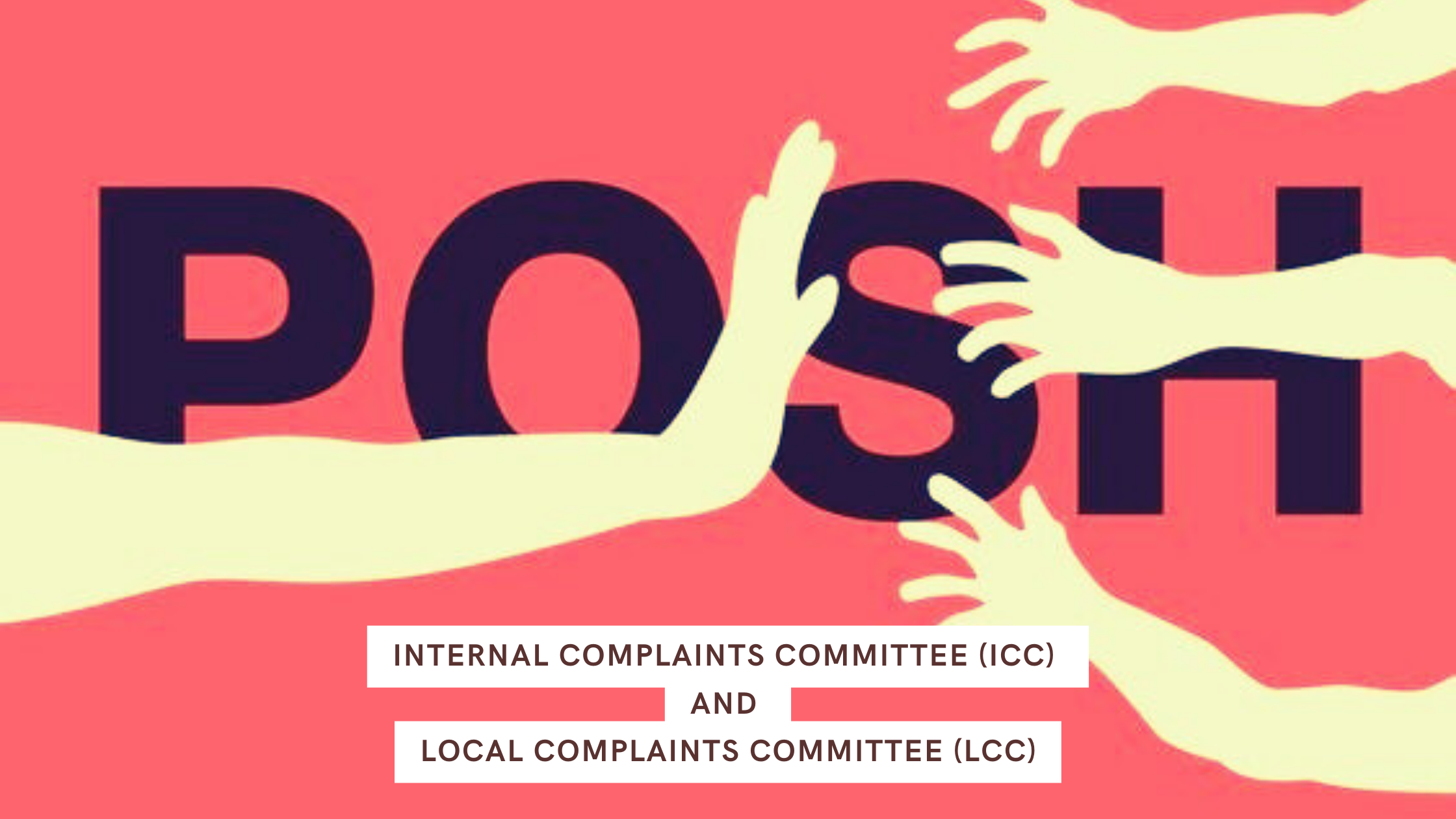
In the realm of workplace safety and equality in India, two important bodies take center stage: the Internal Complaints Committee (ICC) and the Local Complaints Committee (LCC). These entities are integral parts of the Sexual Harassment of Women at Workplace (Prevention, Prohibition, and Redressal) Act of 2013, and they are dedicated to ensuring that women employees can work in an environment free from harassment and fear.
Internal Complaints Committee (ICC):
The ICC is a must-have within any organization boasting 10 or more employees. It’s an internal task force established to address concerns of sexual harassment in the workplace. The ICC is made up of a minimum of four members, with one being an external expert or a dedicated social worker with expertise in sexual harassment issues. The committee’s chairperson is typically a senior female employee.
Responsibilities of ICC:
The ICC is the go-to point for individuals looking to file complaints regarding sexual harassment. They are entrusted with receiving reports and taking action. In cases of complaints, the ICC initiates impartial inquiries that adhere to the principles of natural justice to ensure fairness and objectivity.
Based on their findings, the ICC puts forward recommendations for suitable actions. These actions can include disciplinary measures against the harasser.
To maintain transparency, the ICC submits regular reports to the employer and the government. These reports detail the number of complaints received, actions taken, and the implementation of measures to prevent sexual harassment. ICC also upholds privacy. It is bound to maintain strict confidentiality throughout the entire complaint resolution process to protect the identities and dignity of all parties involved.
Local Complaints Committee (LCC):
The LCC serves as a vital district-level body established under the Sexual Harassment of Women at Workplace Act. Its primary role is to address complaints originating from workplaces with fewer than 10 employees or from women who may not fall under the purview of the ICC due to specific circumstances. The LCC is composed of members appointed by the state government, including a chairperson who is a staunch advocate for women’s rights. LCCs have jurisdiction over cases involving organizations with fewer than 10 employees and instances where the ICC has not been established for any reason.
Responsibilities of LCC:
The LCC serves as a point of contact for women employees or aggrieved individuals seeking to report sexual harassment incidents. Similar to the ICC, the LCC conducts inquiries, ensuring that the principles of natural justice are upheld. Following the inquiry, it makes recommendations for appropriate actions.
Just like its counterpart, the LCC also maintains strict confidentiality during the complaint resolution process, respecting the privacy of all involved parties.
In the larger scheme of things, both the ICC and LCC play pivotal roles in addressing complaints of sexual harassment in the workplace. Employers are not just encouraged but legally obligated to establish and support these committees. Their existence is a testament to the commitment to maintaining a safe, respectful, and harassment-free work environment for women employees in India.
